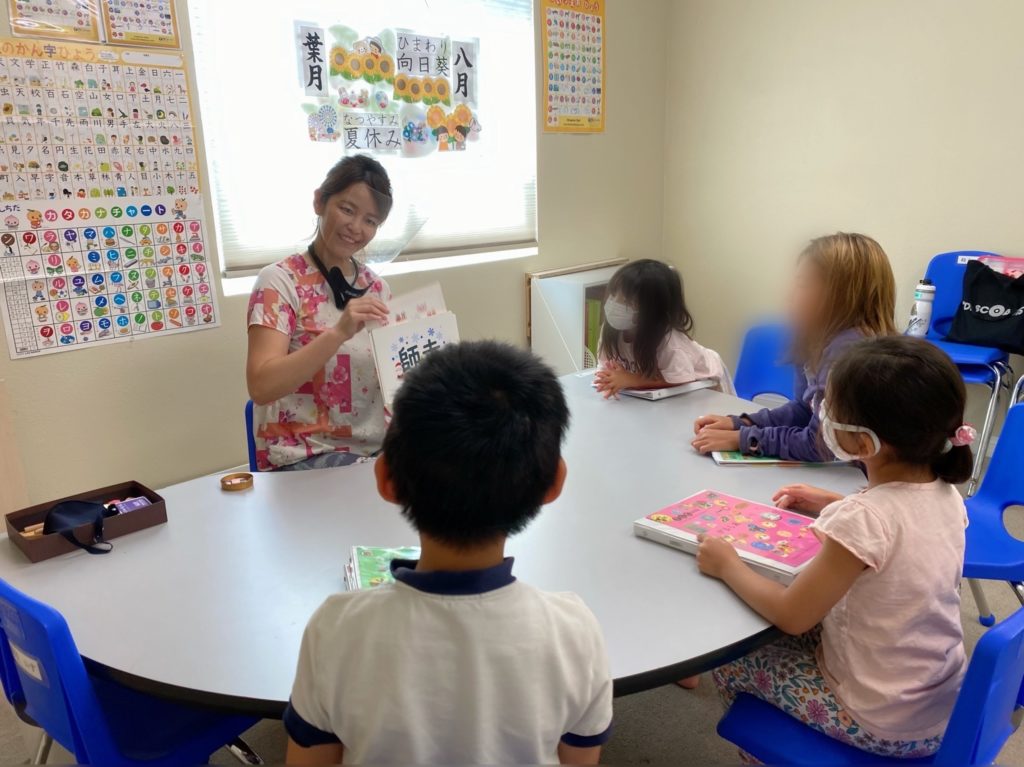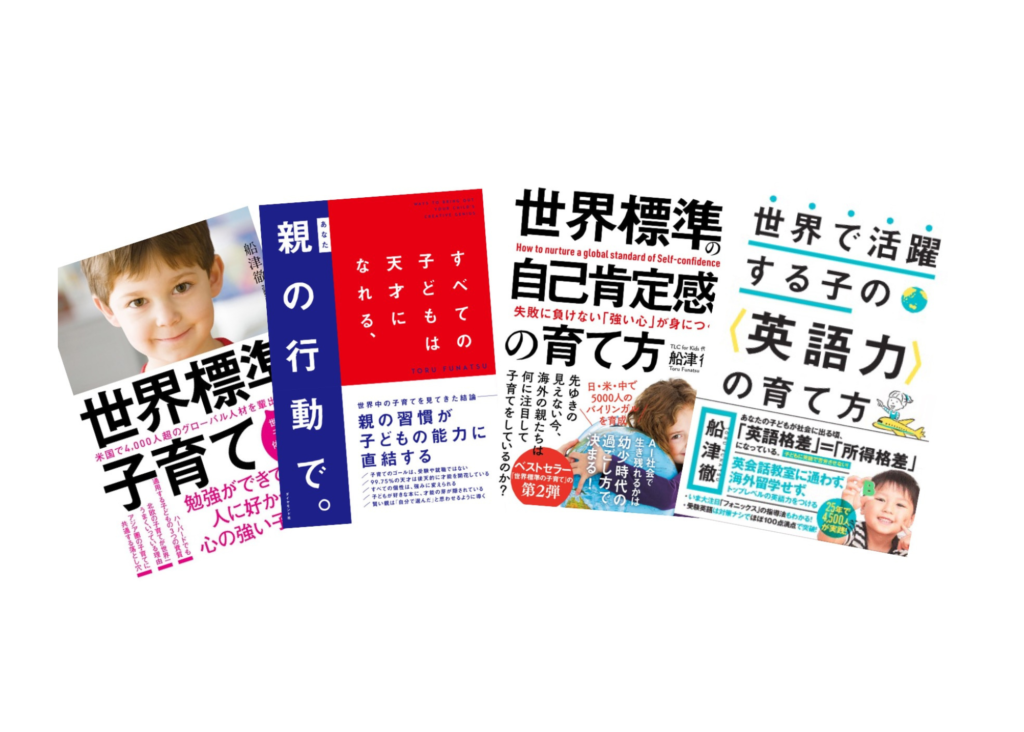Let’s learn Japanese
through song!
The following families have chosen our products.
- I want my child to be able to communicate with grandparents in Japanese.
- I want children to learn while having fun.
- I want my children to learn hiragana and kanji.
- I want to learn from professionals in teaching children.
- I want my child to be able to read Japanese books.
- I want my children to learn pronunciation systematically from the basics.
- I want to take high quality lessons even online.
6 Reasons Why TLC for Kids
POINT1
Chosen by Japanese-American families
We also recommend this service for Japanese Americans who want their children to communicate with their grandparents in Japanese. We have received testimonials about how helping grandchildren with their Japanese homework has strengthened family bonds.

POINT2
Small group of 2~4 people
The ability to express and empathize in Japanese with the teacher and students (2-4 people) who are participating together will be enhanced.In addition, the ability to communicate effectively will be developed.

POINT3
Stimulate the five senses and learn in an engrossing way
Using original flashcards and songs, children can develop reading and writing skills while stimulating their five senses and having fun. The picture cards (flashcards) that correspond to the songs enhance comprehension, stimulate imagination, and foster flexible thinking skills.

POINT4
Bilingual support
Initial inquiries and educational consultation are handled by our Japanese-English speaking staff, who can discuss the content of TLC classes and homework assignments in detail. In addition, educational consultation is free of charge and unlimited for members. You can consult with us anytime about anything you are concerned about at any time.

POINT5
21 years of teaching experience, over 5,000 students in total.
The founder, Toru Funatsu, is a professional who has been involved in the education of over 5,000 children (of all nationalities) in Hawaii, Los Angeles, and Shanghai over the past 22 years. The carefully programmed curriculum is designed to provide children with fun, result-oriented programs that give them a sense of accomplishment and motivation to continue learning.
Authored books: World Standard Child Rearing: How to Raise World Standard Self-esteem, etc.

POINT6
Our alumni are global!
TLC graduates have gone on to Harvard, Yale, Brown, the University of Pennsylvania, and other top universities around the world; including the world’s most prestigious Ivy League schools, and are active globally. The most recent acceptances include, to the University of Tokyo and Yale in 2020, and Yale in 2021.

You will learn the following skills at TLC!

T is for Thinking Skills
The ability to think is necessary to create one’s own life.
At TLC, we nurture the ability to think, and we nurture children who can realize their dreams.

L is Language Skills
TLC’s Japanese language curriculum will help you develop your Japanese language skills to an academic level in a short period of time. Students will develop the ability to read and write Japanese and express themselves in Japanese.

C is Communication Skills
As the future demands the ability to communicate and collaborate smoothly with people from all over the world with diverse backgrounds, TLC for Kids incorporates skills such as singing and drama into its lessons to foster global standard communication skills.
Testimonials from Parents

I am also glad that I found TLC for Kids early on.
(4 years old, Japanese & English class)

He can easily read Hiragana!
(5 years old, Japanese class)
3 Steps to join a trial lesson
STEP1
Hearing of current situation

Apply for the trial lesson participation form. Our staff will reply to you shortly. We will ask you about your child’s background, family structure, history of Japanese language study, and schools attended, in addition to simple classifications such as age and grade. We will introduce you to the most suitable class and have you participate in a trial lesson.
STEP2
Participate in trial lesson

Internet environment and a computer (tablet, laptop, or desktop is recommended for learning effectiveness. Please do not use a smartphone to participate.) TLC lessons will be conducted using the zoom facility. Please make sure your camera and microphone are turned on and off.(For onlone class)
STEP3
Proposal of the best class

During the class, the teacher will casually assess your child’s level of proficiency in a natural way. After the trial lesson, the classroom manager will suggest the best class and direction for your child. You will also have the opportunity to make arrangements for the day and time of the class. After you sign up, we will discuss and decide on the specifics of how to do your child’s homework.
Classes and Tuition
Recommended classes will be suggested by the Japanese teacher and educational counselor after the trial lesson.
Admission fee: $100 (first time only)
Japanese class

Beginner
160 USD (4 sessions/month), 45 minutes per session
for in-person/online
- Starting Japanese language study for the first time
- Ages 3 to 7 years old
- Learning Hiragana sounds (Aiueo) from now on

Intermediate
160 USD(4 sessions/month), 45 minutes per session
for in-person/online
- Can recognize hiragana sounds (aiueo)
- Will learn katakana sounds from now on
- Can read some words that kids know

Advanced
160 USD (4 sessions/month), 45 minutes per session
for in-person/online
- Can read 3~5 letter words at first sight
- Can learn hiragana and katakana in one step
- Can understand at least 500 living words

Private Classes / Japanese Language School Homework Assistance
876 USD (package of 12 sessions) 60 minutes per session
for in-person/online
(Example) 4 times a month x 3 months course standard
We offer tailor-made lessons according to your child’s level of proficiency and needs, such as homework support for Japanese language school, etc. We can provide one-on-one lessons that are tailored to your child’s progress and personality.
The best class for you will be determined by our educational counselor after you apply for a trial lesson.
Further included in the tuition fee
We are ready to cooperate not only during lessons, but also at home to create a Japanese learning environment and support home study. With support from both sides of the family and TLC, your child’s Japanese language skills will soar!
1. Monthly curriculum song viewing

Streaming materials (repeatable) and video materials that can be listened to and played at home are available every month exclusively for students. The songs change each month, so you can enjoy them month after month. By watching the videos at home or playing them while driving in the car, children will naturally learn the phrases.
2. Monthly homework worksheets

After enrollment, we will customize the content and amount of TLC homework to fit your child’s lifestyle. The content of homework assignments is designed so that children can enjoy working on it without getting bored, so they can learn to work on it independently and develop their independence. We also provide consultation regarding changes in content and quantity.
3.Readingsheets

In addition to worksheet homework, we will provide reading sheets. We start with content based on your child’s level. In addition to practicing at home, children will be checked on their reading within TLC classes, and if they pass the test, they will move on to the next level. Through this approach, children will be able to read Japanese passages with ease before long.
4.Monthly Education Column

This is a monthly educational column by TLC founder Mr. Toru Funatsu. The content of the column covers not only language education, but also school life, sports and art lessons, and much more. Please share this column with mothers, fathers, and others involved in your daily child-rearing activities, and use it as a tool to confirm the direction of your child-rearing efforts.
5.Consultation with an educational counselor (unlimited in principle)

Once enrolled, all staff members share information about your child’s progress and proficiency level. We also offer specific counseling and advice on how to help your child adjust to school.
FAQ
Classroom Hours
In person class
Address
3142 Pacific Coast Highway Suite201,
Torrance CA 90505 U.S.A
3:15~4:00(P.M)
4:15~5:00(P.M)
5:15~6:00(P.M)
(Mon〜Fri)
Online Class Time
PST
Los Angeles San Jose
San Francisco Seattle, etc.
3:15~4:00(P.M)
4:15~5:00(P.M)
5:15~6:00(P.M)
(Mon〜Fri)
Online Class Time
MST
Salt Lake City
Denver, etc.
4:15~5:00(P.M)
5:15~6:00(P.M)
6:15~7:00(P.M)
(Mon〜Fri)
Online Class Time
CST
Chicago Oklahoma City
Dallas, Playno, etc.
3:15~4:00(P.M)
4:15~5:00(P.M)
5:15~6:00(P.M)
(Mon〜Fri)
Online Class Time
EST
New York City Boston
New Jersey, etc.
6:15~7:00(P.M)
7:15~8:00(P.M)
8:15~9:00(P.M)
(Mon~Fri)
